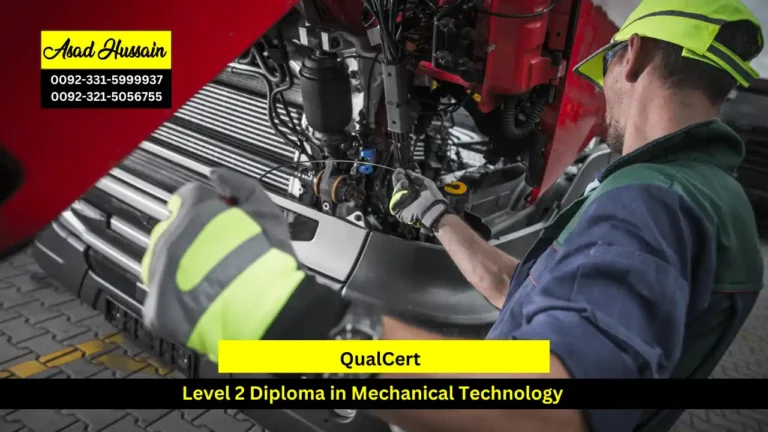In the ever-evolving world of civil engineering and construction, a solid foundation in civil technology is crucial for building a successful career. The Level 1 Diploma in Civil Technology serves as the perfect starting point for aspiring professionals who want to enter this dynamic field. This blog post will explore the essential aspects of this diploma, its benefits, and how it sets the stage for future opportunities in civil engineering and construction.
The Level 1 Diploma in Civil Technology is an entry-level qualification designed to provide students with a fundamental understanding of the principles and practices in civil engineering and construction. It covers the basics of civil technology, including construction materials, techniques, and safety procedures. This diploma is ideal for individuals who have little to no prior experience in the field and are looking to gain the foundational knowledge required for further studies or entry-level positions in the industry.
The Level 1 Diploma in Civil Technology is an excellent starting point for anyone interested in pursuing a career in civil engineering and construction. It provides a comprehensive introduction to the field, equipping students with the foundational knowledge and practical skills necessary to succeed in the industry. Whether you aim to enter the workforce directly or continue your education, this diploma lays the groundwork for a promising future in civil technology. Embrace the opportunity to build your career from the ground up and make your mark in the world of construction and engineering.
Program Highlights
Mandatory Units
- Introduction to Civil Engineering Technology
- Engineering Graphics and CAD
- Surveying Techniques
- Materials and Construction Technology
- Construction Management Principles
- Educational Background: Typically, participants should have a high school diploma or its equivalent (such as a GED). Some programs may require a minimum level of education, such as completion of secondary education, to ensure participants have basic academic skills.
- Language Proficiency: Proficiency in the language of instruction (usually English) is essential to comprehend complex course materials, actively participate in discussions, and complete written assignments.
- Age Requirement: Participants must be at least 18 years of age to enroll in this course.
- Industry Experience: While not always required, some programs may prefer or recommend that participants have some prior industry experience related to the field they intend to study. This can provide valuable context for understanding quality control principles.
Introduction to Civil Engineering Technology
- Understanding the Field: Describe the role and importance of civil engineering technology in infrastructure development.
- Historical Context: Explain the historical evolution of civil engineering and its impact on modern practices.
- Branches of Civil Engineering: Identify and differentiate between various branches of civil engineering, such as structural, environmental, and geotechnical engineering.
- Professional Roles: Recognize the roles and responsibilities of different professionals within the civil engineering field.
- Current Trends: Discuss current trends and emerging technologies in civil engineering.
Engineering Graphics and CAD
- Technical Drawing Skills: Create and interpret basic technical drawings and blueprints used in civil engineering.
- CAD Software Proficiency: Demonstrate proficiency in using Computer-Aided Design (CAD) software to produce and modify engineering drawings.
- Drawing Standards: Apply standard conventions and symbols used in engineering graphics to ensure clarity and accuracy.
- Dimensioning and Annotation: Accurately dimension and annotate drawings to communicate design specifications effectively.
- Visualization: Develop the ability to visualize and interpret three-dimensional objects from two-dimensional drawings.
Surveying Techniques
- Basic Surveying Principles: Explain the fundamental principles and objectives of surveying in civil engineering.
- Surveying Equipment: Identify and use basic surveying equipment, such as levels, theodolites, and total stations, for measuring distances and angles.
- Data Collection: Collect and record accurate survey data, including measurements and observations.
- Site Mapping: Create accurate site maps and plans based on survey data.
- Error Analysis: Analyze and correct common errors encountered in surveying processes.
Materials and Construction Technology
- Material Properties: Identify and describe the properties of common construction materials, including concrete, steel, timber, and masonry.
- Material Testing: Conduct basic tests to assess the quality and suitability of construction materials.
- Construction Techniques: Explain and apply fundamental construction techniques and processes.
- Material Selection: Select appropriate materials for different construction applications based on their properties and performance.
- Sustainable Practices: Discuss sustainable practices and innovations in construction technology.
Construction Management Principles
- Project Planning: Explain the principles of project planning, including scheduling, budgeting, and resource allocation.
- Management Roles: Describe the roles and responsibilities of construction managers and other key personnel in a construction project.
- Contract Administration: Understand basic concepts of contract administration and project documentation.
- Risk Management: Identify potential risks in construction projects and discuss strategies for managing and mitigating these risks.
- Quality Control: Explain the importance of quality control in construction and describe methods for ensuring compliance with quality standards.
The Level 1 Diploma in Civil Technology is tailored for individuals seeking an entry-level qualification in civil engineering and construction. This course is ideal for those who are new to the field and wish to build a solid foundation in civil technology principles and practices. It is particularly suitable for school leavers, career changers, or individuals currently working in related sectors who want to formalize their knowledge and enhance their career prospects. Additionally, the course caters to those aiming to progress to more advanced studies in civil engineering or construction management. With its comprehensive introduction to essential concepts and practical skills, this diploma is designed to equip learners with the necessary tools to embark on a successful career in civil technology.







